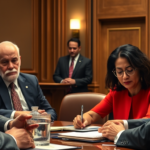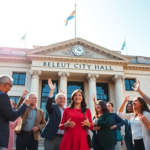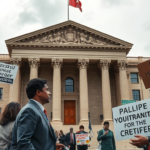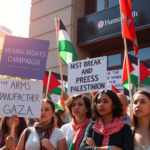Scholarship Dispute Reveals Tensions Between UWF and Donor Over ‘Diversity’ in State Education
In a controversy that raises questions about educational values and state politics, a scholarship from University of West Florida (UWF) donors, John Smykla and Evelyn Ortiz Smykla, has not been awarded in recent years due to its inclusion of the word “diversity.” The scholarship, aimed at supporting Hispanic students interested in criminal justice, highlights the ongoing clash between academic priorities and political directives in Florida.
A Vision for Inclusivity
Back in December 2011, John Smykla, the former head of UWF’s Criminal Justice and Legal Studies department, and his wife, Evelyn Ortiz Smykla, established the Evelyn Ortiz and John Ortiz Smykla Criminal Justice Scholarship in Diversity. Their initial $25,000 endowment was meant to help Hispanic students excel in higher education and honor Evelyn’s Puerto Rican roots. Over time, interest revenue increased the fund to over $33,700.
However, despite its presence on the UWF’s scholarship portal, the scholarship is now listed as “Ended” with a faded promise, exhibiting a $0.00 award amount. The donors believe the cause lies in the highly contested term “diversity,” which, according to them, does not resonate well with Florida’s current political landscape.
Current State Policies: A Barrier?
The Smyklas assert that the scholarship’s unfulfilled purpose stems directly from political pressures to de-emphasize “diversity” in higher education. They report limited communications from UWF, though scholarship administrators allegedly told them the situation arose from recent state mandates.
For the Smyklas, this represents a significant interference with their philanthropic intent, emphasizing their wish for a return of funds if the scholarship cannot operate under its original terms. “What kind of ethical obligations do they have to hold our money and not award it, forcing us to change the award to align with governmental mandates? That is just not fair,” stated John Smykla in a recent interview.
Howard Reddy, President of the UWF Foundation, reached out to the couple attempting to negotiate alternative options for the scholarship. The university administration maintains that actions align with state compliance mandates. In a prepared statement, the UWF Foundation insisted on adhering to all “state and federal laws and regulations” regarding scholarship management, alluding to ongoing adjustments due to emerging state governance.
Community Impact and Reflections
This situation implicates Pensacola, the UWF community, and beyond to recognize the strained dialogue between local philanthropy and educational administration. The region’s socio-cultural dynamics have evolving implications in the face of diverse academic representation.
Local resident Maria Gonzalez, a community advocate for educational equity, remarked, “Scholarships like the Smyklas’ are essential in creating opportunities for historically underrepresented populations. It’s disheartening to see political constraints prevent these benefits.”
A parallel scenario involves the University of West Florida pondering its observance of Juneteenth, following similar discussions regarding state directions and holiday recognitions, further exemplifying how politico-cultural debates affect educational policy.
Future Directions
Looking towards potential resolutions involves myriad factors, including negotiations between the university and other invested parties. If the scholarship is reinstated, UWF must navigate communicating effectively with the Smyklas, ensuring alignment with donors’ wishes, while also addressing state-imposed guidelines.
As the discourse unfolds, it highlights broader implications regarding the obligation of educational institutions to honor donor commitments amid fluctuating political contexts. Equally, there are lessons in transparency and communication, marking the need to balance stakeholders’ expectations against regulatory realities.
The tensions between the university’s role in a changing political environment and donor intentions may set a precedent for how similar situations evolve in Florida and beyond. Community members and state observers await to see if negotiations preserve the scholarship’s essence, serving students in line with the donors’ initial vision.
A Call to Engage
For those affected or interested in these developments, UWF and the Smyklas both emphasize openness to dialogue and input moving forward. Residents of Pensacola and the broader community can engage through public forums and outreach efforts to advocate for clarity and the alignment of educational opportunities.
Ultimately, this case serves as a microcosm of larger debates ongoing across the nation around education, politics, and the expression of diversity. As it stands, the Smyklas’ continued efforts and steadfast commitment underscore the importance of addressing such complex intersections with care and responsiveness.







